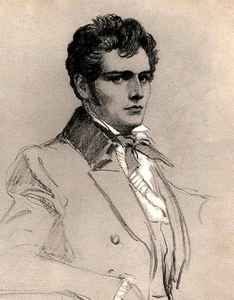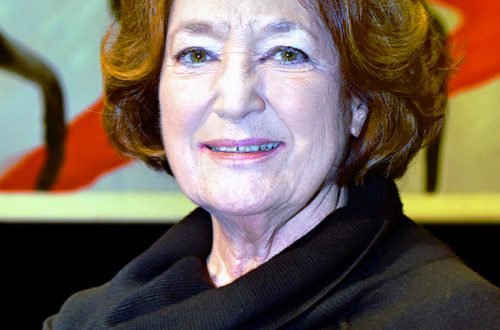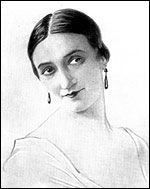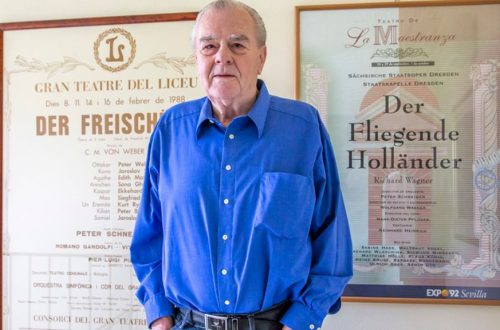
Panteleimon Markovich Nortsov (Panteleimon Nortsov) |
Panteleimon Nortsov
“At the last performance of The Queen of Spades at the Experimental Theater, the still very young artist Nortsov performed as Yeletsky, who promises to develop into a major stage force. He has an excellent voice, great musicality, favorable stage appearance and the ability to stay on stage … “” … In a young artist, it is pleasant to combine great talent with a very large share of stage modesty and restraint. It can be seen that he is inquisitively looking for the right embodiment of stage images and at the same time is not fond of the external showiness of the transmission … ”These were the press responses to the first performances of Panteleimon Markovich Nortsov. A strong, beautiful baritone of a large range, charmingly sounding in all registers, expressive diction and outstanding artistic talent quickly promoted Panteleimon Markovich to the ranks of the best singers of the Bolshoi Theater.
He was born in 1900 in the village of Paskovschina, Poltava province, into a poor peasant family. When the boy was nine years old, he arrived in Kyiv, where he was accepted into the Kalishevsky choir. So he began to independently earn his living and help the family remaining in the village. The Kaliszewski choir performed in villages usually only on Saturdays and Sundays, and therefore the teenager had a lot of free time, which he used to prepare for high school exams.
In 1917 he graduated from the Fifth Evening Kyiv Gymnasium. Then the young man returned to his native village, where he often performed in amateur choirs as a leader, singing Ukrainian folk songs with great feeling. It is curious that in his youth, Nortsov believed that he had a tenor, and only after the first private lessons with a professor at the Kyiv Conservatory Tsvetkov was convinced that he should sing baritone parts. After working under the guidance of this experienced teacher for almost three years, Panteleimon Markovich was accepted into his class at the conservatory.
Shortly after that, he was invited to the troupe of the Kyiv Opera House and instructed to sing such parts as Valentine in Faust, Sharpless in Cio-Cio-San, Frederic in Lakma. 1925 is a significant date on the creative path of Panteleimon Markovich. This year he graduated from the Kyiv Conservatory and met Konstantin Sergeevich Stanislavsky for the first time.
The management of the conservatory showed the famous master of the stage, who came to Kyiv together with the theater that bears his name, a number of opera excerpts performed by graduate students. Among them was P. Nortsov. Konstantin Sergeevich drew attention to him and invited him to come to Moscow to enter the theater. Finding himself in Moscow, Panteleimon Markovich decided to take part in the audition of voices announced at that time by the Bolshoi Theater, and was enrolled in his troupe. At the same time, he began to study at the opera studio of the theater under the guidance of director A. Petrovsky, who did a lot to shape the creative image of the young singer, teaching him to work on creating an in-depth stage image.
In the first season, on the stage of the Bolshoi Theater, Panteleimon Markovich sang only one small part in Sadko and prepared Yeletsky in The Queen of Spades. He continued to study at the opera studio at the theater, where the conductor was the outstanding musician V. Suk, who devoted much time and attention to working with the young singer. The renowned conductor had a huge impact on the development of Nortsov’s talent. In 1926-1927, Panteleimon Markovich worked at the Kharkov and Kiev opera theaters already as a leading soloist, performing many important roles. In Kyiv, the young artist sang Onegin for the first time in a performance in which his partner in the role of Lensky was Leonid Vitalyevich Sobinov. Nortsov was very worried, but the great Russian singer treated him very warmly and friendly, and later spoke well of his voice.
Since the 1927/28 season, Panteleimon Markovich has been singing continuously on the stage of the Bolshoi Theater in Moscow. Here he sang over 35 opera parts, including such as Onegin, Mazepa, Yeletsky, Mizgir in The Snow Maiden, Vedenets Guest in Sadko, Mercutio in Romeo and Juliet, Germont in La Traviata, Escamillo in ” Carmen, Frederic in Lakma, Figaro in The Barber of Seville. P. Nortsov knows how to create truthful, deeply felt images that find a warm response in the hearts of the audience. With great skill he draws the heavy emotional drama of Onegin, he puts deep psychological expressiveness into the image of Mazepa. The singer is excellent at the fabulous Mizgir in The Snow Maiden and many vivid images in the operas of the Western European repertoire. Here, full of nobility, Germont in La Traviata, and the cheerful Figaro in The Barber of Seville, and the temperamental Escamillo in Carmen. Nortsov owes his stage success to the happy combination of a charming, wide and free-flowing voice with the softness and sincerity of his performance, which always stands at a great artistic height.
From his teachers, he took a high musical culture of performance, distinguished by the subtlety of the interpretation of each performed part, deep penetration into the musical and dramatic essence of the created stage image. His light, silvery baritone is distinguished by its original sound, which allows you to immediately recognize Nortsov’s voice. The singer’s pianissimo sounds heartfelt and very expressive, and therefore he is especially successful in arias that require a filigree, openwork finish. He always strikes a balance between sound and word. His gestures are carefully thought out and extremely stingy. All these qualities give the artist the opportunity to create deeply individualized stage images.
He is one of the best Onegins of the Russian opera scene. The subtle and sensitive singer endows his Onegin with the features of a cold and restrained aristocracy, as if fettering the feelings of the hero even in moments of great spiritual experiences. He is remembered for a long time in his performance of the arioso “Alas, there is no doubt” in the third act of the opera. And at the same time, with great temperament, he sings Escamillo’s couplets in Carmen, filled with passion and the southern sun. But here, too, the artist remains true to himself, doing without cheap effects, which other singers sin; in these verses, their singing often turns into cries, accompanied by sentimental breaths. Nortsov is widely known as an outstanding chamber singer – a subtle and thoughtful interpreter of works of Russian and Western European classics. His repertoire includes songs and romances by Rimsky-Korsakov, Borodin, Tchaikovsky, Schumann, Schubert, Liszt.
With honor, the singer represented Soviet art far beyond the borders of our Motherland. In 1934, he participated in a tour to Turkey, and after the Great Patriotic War he performed with great success in the countries of people’s democracy (Bulgaria and Albania). “The freedom-loving Albanian people have boundless love for the Soviet Union,” says Nortsov. – In all the cities and villages that we visited, people came out to meet us with banners and huge bouquets of flowers. Our concert performances met enthusiastically. The people who did not get into the concert hall stood in crowds in the streets near loudspeakers. In some cities, we had to perform on open stages and from balconies in order to give an opportunity to a larger number of spectators to listen to our concerts.
The artist paid great attention to social work. He was elected to the Moscow Soviet of Working People’s Deputies, was a regular participant in patronage concerts for units of the Soviet Army. The Soviet government highly appreciated the creative merits of Panteleimon Markovich Nortsov. He was awarded the title of People’s Artist of the RSFSR. He was awarded the Orders of Lenin and the Red Banner of Labor, as well as medals. Laureate of the Stalin Prize of the first degree (1942).
Illustration: Nortsov P.M. – “Eugene Onegin”. Artist N. Sokolov





